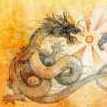-
Posts
483 -
Joined
-
Last visited
Never
Posts posted by Daimashin
-
-
You can't read it directly.
-
You can't read it directly.
-
You can't read it directly.
-
You can't read it directly.
-
You can't read it directly.
-
You can't read it directly.
-
You can't read it directly.
-
You can't read it directly.
-
You can't read it directly.
-
You can't read it directly.
-
You can't read it directly.
-
You can't read it directly.
-
You can't read it directly.
-
You can't read it directly.
-
You can't read it directly.
-
You can't read it directly.
-
You can't read it directly.
-
You can't read it directly.
-
You can't read it directly.
-
You can't read it directly.
-
You can't read it directly.
-
You can't read it directly.
-
You can't read it directly.
-
You can't read it directly.


The most suitable language for swearing ?
in Language Learning
Posted